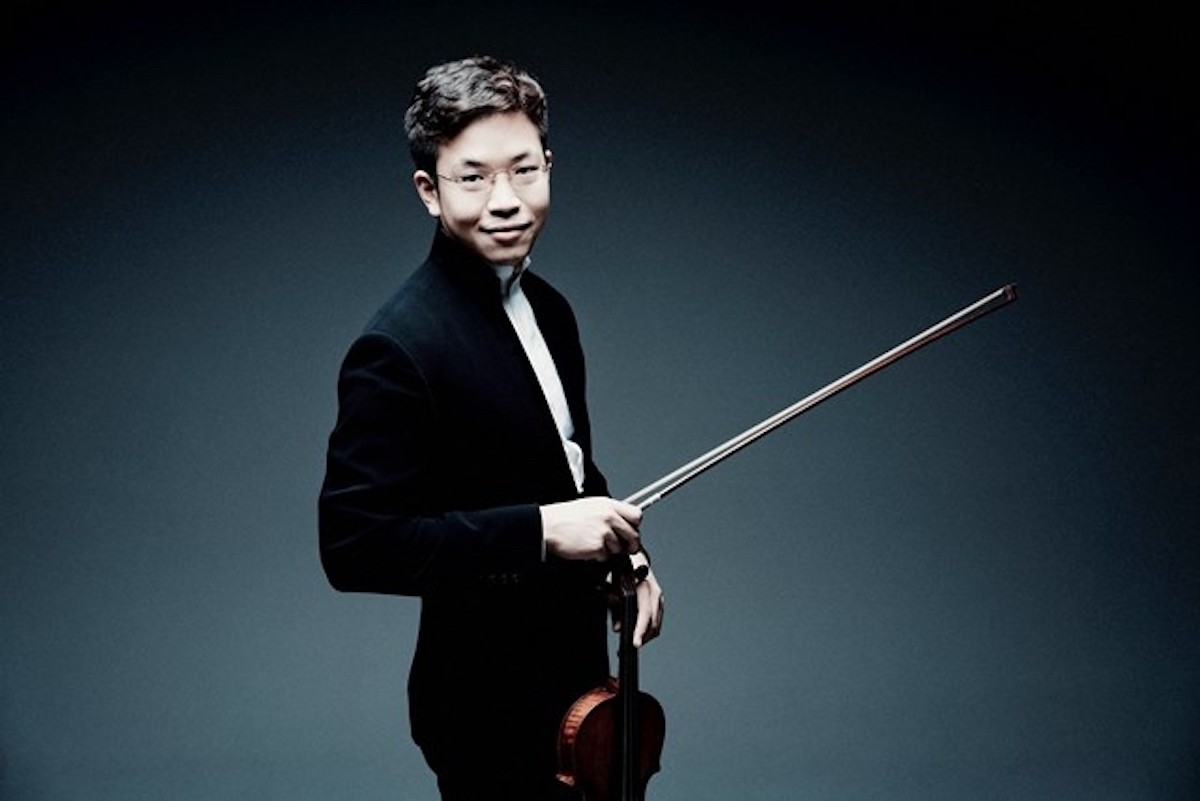No one will think of guest soloist Paul Huang, who performed with the Knoxville Symphony Orchestra at the Tennessee Theatre Thursday night as just another showman with a great violin.
Huang did nothing, except play Beethoven’s 1806 Concerto for Violin and Orchestra in D Major, Op. 61 gorgeously, that one could interpret as designed merely to attract attention to himself. Even his bow flourishes at the end of passages were reserved.
Huang, 27, is much more a statesman of the concert stage than a showoff. He also plays with a sense of poetry few people possess at that age.
His performance of Beethoven was played with such tenderness and poetic beauty it was more like a love letter to Beethoven than an opportunity to show how genuinely gifted he is. Everyone who pays attention to such things already knows his enormous talent from his 2015 Avery Fisher Career Grant and the 2017 Lincoln Center Award for Emerging Artists.
His playing is elegant. Each note is played with such clarity the music sounds as though it is being played slowly to get every nuance just right. Even his trills have a sense of atomic precision. The high notes are so brilliant there is a tendency to think they are played slightly sharp, a trick often used by violin and, especially, trumpet players to give their notes an added quality of brightness.
Huang’s playing of the cadenza in the first movement that sounded like mostly the Fritz Kreisler cadenza, with a little Huang thrown in, gave him an added chance to dazzle everyone in the house. That he did. But it was also played with dignity and respect for the whole of the concerto.
Of course, Huang does play a great a violin, the 1742 ex-/Wieniawski Guarneri del Gesu, generously loaned to him by the Stradivari Society of Chicago. Loans of valuable instruments are partly to help exceptional musicians who cannot afford to purchase high ticket treasures, on the rare occasions they become available, and partly to keep the instruments in good condition.
Counterintuitively, great string instruments need to be have sound vibrating within them to keep them in shape and worth their millions.
Guest conductor Joshua Gersen, current assistant conductor of the New York Philharmonic, clearly cared as much about the purity and sincerity of the Beethoven concerto as Huang did, giving every orchestral note and phrase the kind of respect the greatest concerto ever written for the violin deserves.
After intermission, Gersen’s conducting of Richard Strauss’ Tod und Verklarung (Death and Transfiguration), Op. 24, about the last moments in an old man’s life and thoughts of the afterlife, was presented with equal grace and respect for the music. It earned Gersen a standing ovation.
With his following performance of Tchaikovshy’s Fantasy Overture, Romeo and Juliet, first composed in 1870 and revised in 1880, Gersen firmly established that he is gifted in his own right.
Like Huang, there is nothing in Gersen’s conducting style done just for the visual flourish of added drama. His motions are restrained almost to the point of lacking clarity, at least viewed from behind.
Adjusting to a new conductor is something with which the musicians of the KSO have had recent experience, with the arrival of new KSO music director and conductor Aram Demirjian.
From the leaflets again passed out by the musicians before last night’s concert, it seems that the KSO organization and the musicians’ union continue to have more adjusting to do on another front.
It’s past time to get it done.

